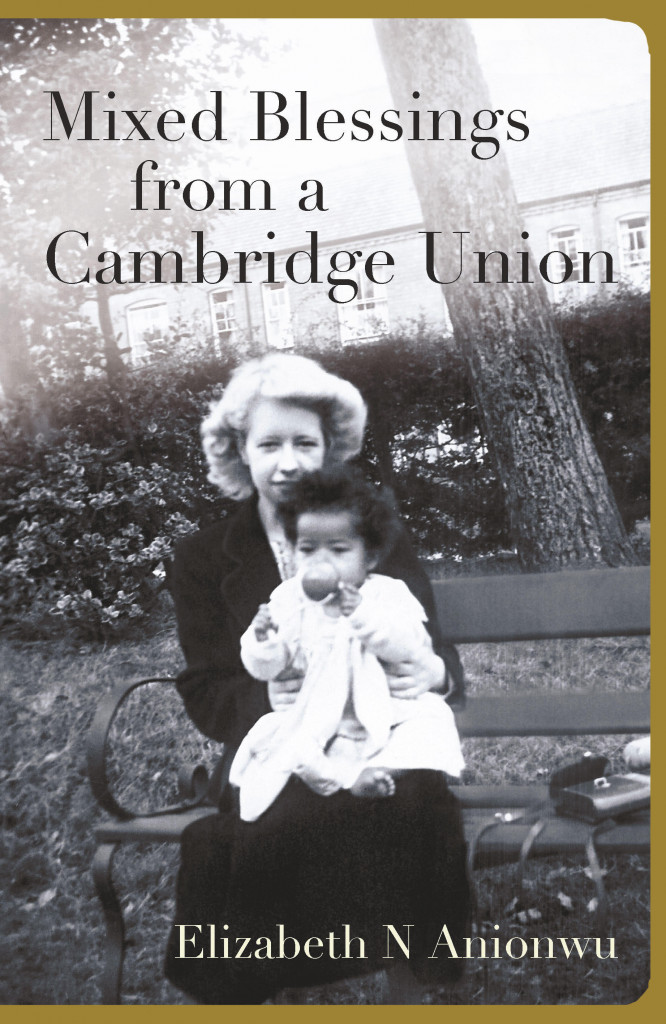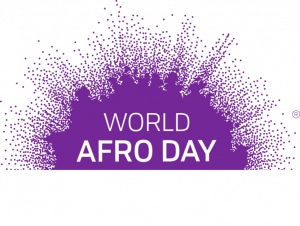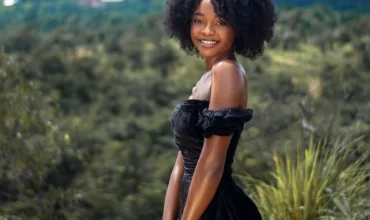Professor Dame Elizabeth Anionwu
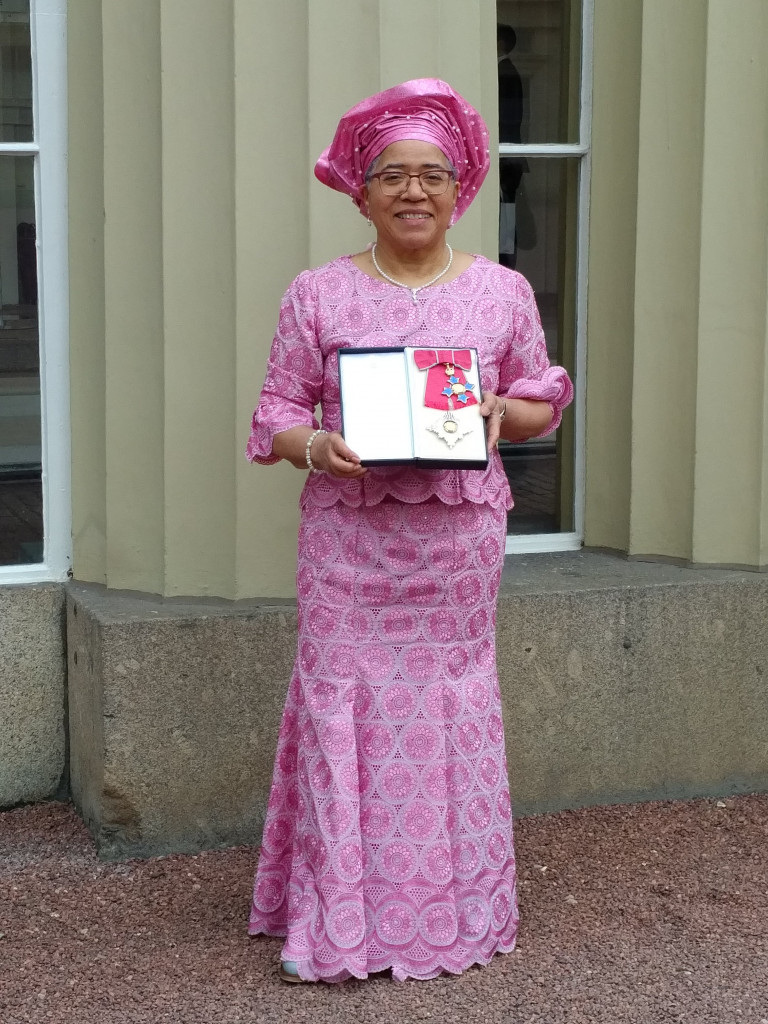
You’ve recently become a Dame, despite your humble beginnings of being in care. What was it like when you first found out?
“I couldn’t believe it, I read the letter three times. I was on my own in the hall and looked up in mirror and I could see I had gone a bit pale! I was really shocked, I just thought wow wow. I was given it for services to Nursing and the Mary Seacole Statue Appeal.” You wore a gele to Buckingham Palace, when you got your Damehood. Was it a conscious decision to choose an African presentation? “Yes it was conscious, I don’t wear skirts and heels much because of an injury.” She wanted to wear something Nigerian and got kitted out at a shop, that she uses in Streatham. “A big event warrants that kind of outfit.”
You’re a professor as well, how did that come about?
“I am now an Emeritus Professor but in 1998 I became Professor of Nursing at the University of West London.” Emeritus is when you retire but the University still wants to keep links with you as a professor so it is an honour and not automatic. Elizabeth has reached the height of her academic career but this achievement is made all the more remarkable by the fact that she spent 9 years in the care system; left school at 16 and did a degree as a mature student. Her non traditional route is a real example of what can be achieved from any background. People are thrilled, when they hear her story, she has overcome a lot of adversity and gives hope to many.
Your memoirs mention a friend, that thought you couldn’t go far in nursing because you were black. Was that a surprise, that she felt that way?
Her friend had never told her, before the book. “I interviewed friends and family and I wanted them to be as open as possible. A theme throughout my book is my changing sense of identity. This friend knew me before and after meeting my Nigerian father. Previously I did not have any links to my African family. I wanted to see if my circle of friends noticed changes in me after finding the other half of me, that had been missing. I thought it was very honest of her to open up and talk about her prejudicial assumptions. She tried to analyse why she had had those thoughts. She’s an intelligent woman so believed she must have grown up with that prejudice but asked where did it come from?” Her friend concluded, it was because she didn’t see black people as ward sisters and didn’t see black people in authority. This lack of representation of black people in positions of authority in society informed her friend’s prejudice.
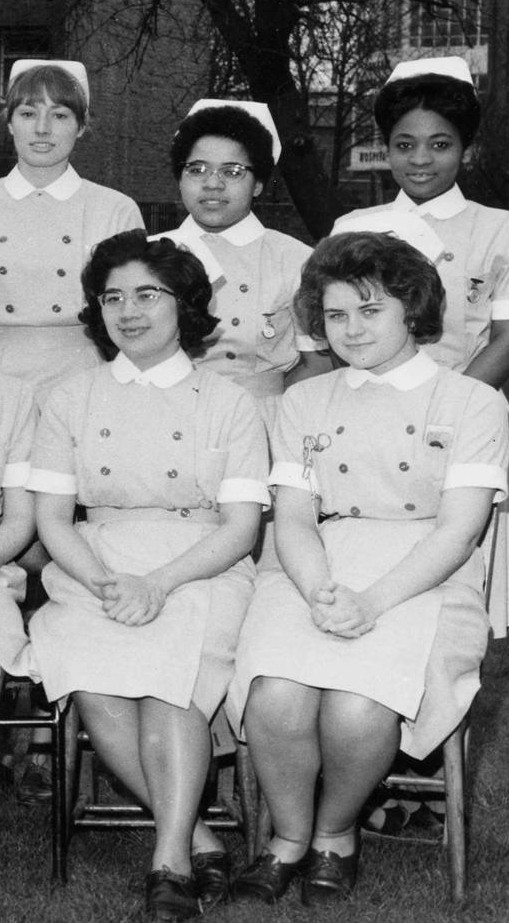
There is a natural hair revolution going on but one of the biggest barriers seems to be whether our natural hair, will hinder our success in the workplace. What has been your experience?
During her 20s she became more politically aware. She really woke up in France and the scales came off her eyes. “ I’m a black woman and I knew nothing about my history or culture. I became more aware and I decided to stop straightening my hair.” Regarding ‘Careers & Curls,’ she responds emphatically: “I couldn’t care less, what others thought about my hair, I didn’t ask permission! I think people knew, don’t start any silly conversations about my hair!” If anyone had dared to talk to her about her hair, she would have given them short shrift and “the look.” Famous with people of African descent; ‘the look’ can silence an embarrassing child or a mortal enemy. Elizabeth loves her hair and is very comfortable with it. Her short 3 year period with relaxers didn’t work for her. Although the look was desirable, she found herself in a cycle that didn’t make any sense. She was chemically straightening her hair, then adding rollers to make it curly! Finally, the relaxer burns, plus waking up politically; put an end to her straight hair season and she never went back!
What is your first hair memory?
“I remember Catholic nuns tying a huge red ribbon in the middle of my nappy hair. They had to pull it up so tightly, that it made my scalp sore so I would have to pull it out.” There are vivid memories of the pain of people trying to comb her hair out and she would ball her head off! Like many Black children in care; She was a ‘looked after’ child but no one knew how to look after her hair!

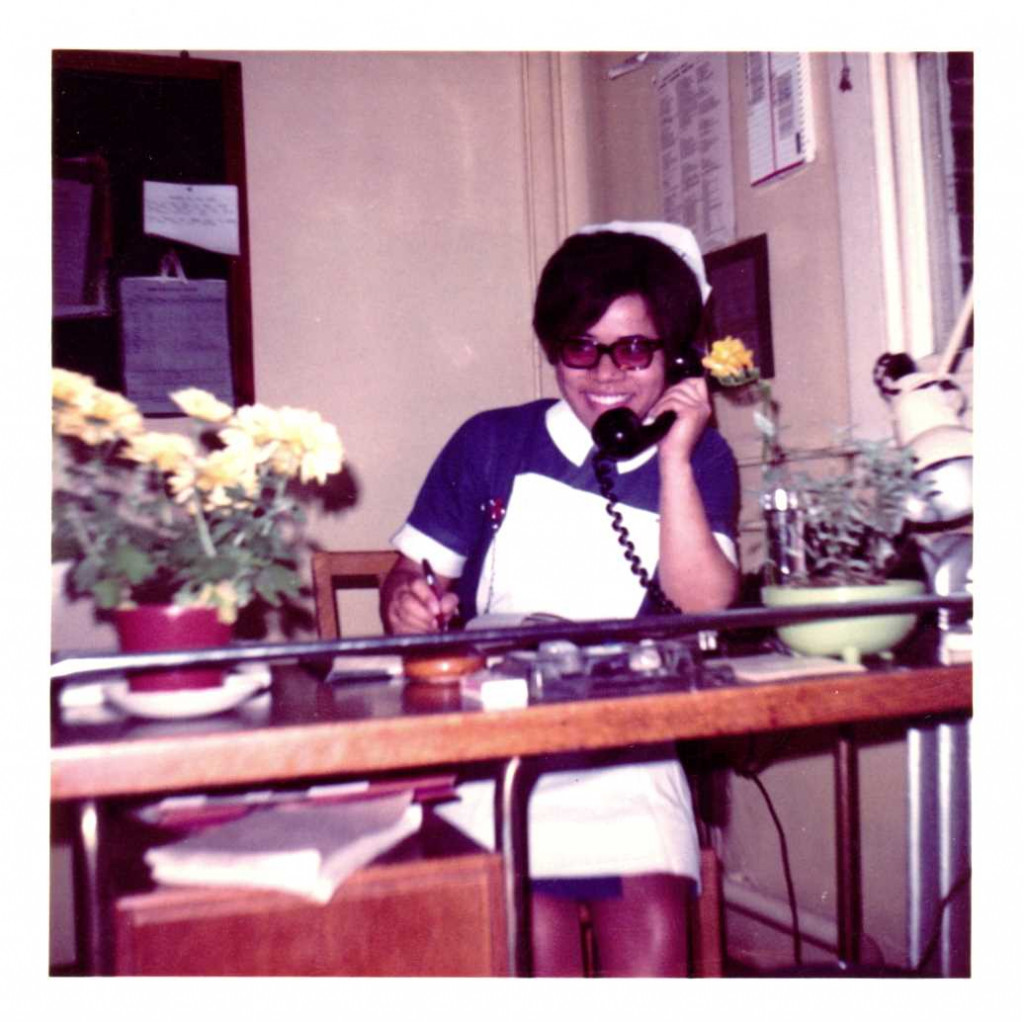
When was the first time you loved your hair?
“Actually the first time I got it straightened I liked it but it was such a mess before. I had no idea how to care for it natural because I grew up in a white community in Birmingham and Wallasey, without any black influence.” The next time Elizabeth felt good about her hair, was when she started to wear a big afro in the 70s. She was in her twenties, going to community events, partying, dressing up and coming into her own as a woman! She blossomed and felt more confident but she had to work out how to dance because she hadn’t even been allowed to go to youth clubs by her strict Irish Catholic grandmother. She was strict on Elizabeth in her teens, because she was determined to avoid history repeating itself and Elizabeth ending up as a young single parent like her mother. Consequently, she didn’t have the normal teenage social life.
You were rocking a ‘fro in the 70s at the height of its popularity. What was it like to be surrounded by so many other black people, wearing their natural hair with pride?
Virtually all throughout the 70s, she was in her ‘fro basking in the Black is Beautiful and Black Power movements. They were all singing ‘Young Gifted and Black.’ People walked around with afro combs in their hair, wearing, dashikis and kaftans (yes it does sound likes a scene from a movie). They were a part of something, with a sense of ‘I don’t care and I’m proud of being black.’ It was a happening time, she went to America on visits, they were having fun and there were great resources around from the GLC (Greater London Council). Black groups were getting funding to express themselves.

You spent holidays with your dad in Nigeria during the 70s. What was that like, did they like your natural hair?
This was the first time that she had seen a real variety in natural hairstyles. Every age group had lots of different styles, she was struck by that. “There was straight styles too but I liked seeing people sitting outside in the open air, doing their hair and having a chat and gossip.”

Your father was a role model for your career success. This blog aims to do the same for others. How important is it to see black women with natural hair at the top of their profession?
“This sends out an incredible message, that they are at ease with themselves. People have strong views about choice and it’s a very complex subject and on social media, people get very fiery, people don’t want to be told what to do!”
What advice would you give young people, about standing out in society?
“Develop confidence by finding out what you’re good at and be prepared to put in the effort. Confidence helps you interpret life differently.” Elizabeth thinks that she has also developed a positive outlook on life, that has helped her overcome her difficult childhood. Great achievers, overcome adversity, there will always be challenges in life. Her brilliant advice is: work hard, do your best to achieve, treat others well and ignore the negative. When Trump was elected, there was utter shock in her household but she reassured her daughter: “We’ve had 8 years of Obama!” Writing her book made her realise that she had been channeling her anger into campaigning about sickle cell and the Mary Seacole Statue.
Why do you think World Afro Day is important?
It’s new, it’s a time when there is still a lot of negativity about our hair. Students are sent home, employers say it’s not appropriate. I like the idea to celebrate, those who are curious can learn more. Those who it doesn’t affect can reflect and maybe change their thoughts. It’s an excellent initiative.
Her memoirs are out now ‘Mixed Blessings from a Cambridge Union’ Elizabeth N Anionwu
On Amazon as a paperback and e-book:
